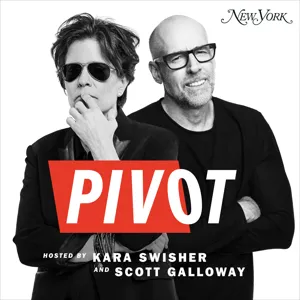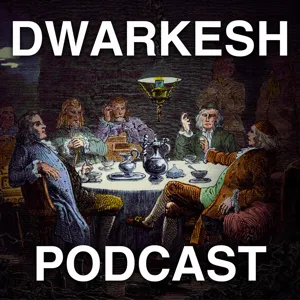Podcast Summary
Remote work benefits and challenges: The pandemic led to remote work, saving on real estate costs and providing flexibility, but also presented challenges like lack of space and distractions.
The pandemic has led to a significant shift towards remote work, and organizations are discovering benefits such as increased productivity and better concentration for employees. Angela Duckworth, the host of the podcast, shares her experience of her nonprofit, Character Lab, making the decision to become a remote-first organization, saving on real estate costs and providing flexibility for employees. The convenience and comfort of working from home have been highlighted as advantages, although challenges such as lack of space or distractions also exist. The discussion also touches upon the individual experiences of the podcast hosts and their families, illustrating the varying circumstances and reactions to remote work.
Impact of Remote Work on Individuals Varies: The pandemic has led to increased productivity for some, while others miss the spontaneous social interactions and 'collision' of ideas from living in a densely populated area. Some experience longer work hours and more meetings.
The shift to remote work during the pandemic has had varying impacts on different individuals. For some, like the speaker, working from home has been a positive experience, leading to increased productivity and a decent supply of social interaction through virtual meetings. However, for others, the lack of spontaneous, accidental social interactions and the absence of the "collision" of ideas that come from living in a densely populated area may be missed. The speaker also noted an increase in work hours and meetings during the pandemic. While some may find the increased isolation a blessing, especially those who are antisocial, others may long for the serendipitous social interactions that come from living in a community. Ultimately, the pandemic has highlighted the importance of considering individual preferences and needs when it comes to work arrangements and living situations.
The importance of spontaneous social interactions: Understanding individual social needs and finding ways to accommodate them is crucial in a post-pandemic world. Spontaneous social interactions can lead to deeper connections and improved well-being.
While we may not have as many spontaneous work collisions during remote work, the importance of social interaction and the benefits it brings cannot be overlooked. The speaker shared an example of a spontaneous social interaction with their dog walking neighbors, which led to a deeper connection and a planned outdoor dinner. The pandemic has given many people a new perspective on their social needs and comfort levels, with some discovering that they prefer less social gatherings and others realizing the importance of social interaction for their overall well-being. The speaker also suggested that social gatherings serve a purpose beyond personal happiness, and that they might be beneficial in ways that are not immediately apparent. Ultimately, the speaker expressed a desire to change the nature of social gatherings to something more enjoyable and engaging, like bowling, rather than the traditional small talk and standing around. The pandemic has highlighted the importance of understanding individual differences and finding ways to accommodate diverse social needs in a post-pandemic world.
The Importance of Social Connections Amidst the Pandemic: The pandemic has led to more use of open spaces and potential for social collisions, but it's also predicted to bring some continuity with the past, as humans tend to respond consistently over time.
The pandemic has highlighted the importance of social connections and the potential negative consequences of social isolation. Robert Putnam's work before the pandemic warned about the trend of people bowling alone and the vicious cycle it creates. However, the pandemic has led to more use of open spaces and a potential for collisions with neighbors, bringing people together. Looking ahead, there are predictions for the permanence of remote work and advancements in mRNA technology. While the world may change in some ways, it's also expected to resemble the past more than we might think, as humans tend to respond consistently over time. A historical perspective shows that even after the 1918 pandemic, it had little impact on US policy making.
Confirmation bias in the pandemic era: Confirmation bias, a cognitive bias that seeks evidence for our beliefs and dismisses contradictory evidence, can impact decision-making and conversations, even during the pandemic.
Despite the significant changes brought about by the pandemic, human nature and cognitive biases like confirmation bias may remain unchanged. The podcast, born during the pandemic, could continue long after it's over. Confirmation bias is the tendency to seek evidence that confirms our preexisting beliefs and dismiss contradictory evidence. It can impact our decision-making and conversations. An example of this bias is making a quick judgment during a job interview and then selectively paying attention to information that confirms that judgment. The hypothetical creation of a confirmation bias vaccine raises questions about how much we want to change ourselves and whether our biases are integral to our identity.
Biases in Hiring Decisions: Being aware of our biases and actively seeking out diverse perspectives and information can help reduce their impact on hiring decisions. Structured interviewing techniques and objective assessments can also help mitigate bias.
Our biases, even for those of us who are highly educated and experienced, can significantly impact our hiring decisions. We often make snap judgments based on limited information, such as the beginning of a conversation or a glance at a CV, and then fill in the details to create a coherent narrative. This need for coherence can lead to confirmation bias, where we seek out information that confirms our initial impressions and ignore information that contradicts them. For example, we may be biased towards candidates who seem to like us or who are quick and witty in conversation, and we may overlook important traits or qualifications that don't fit into our preconceived notions. To mitigate these biases, it's important to be aware of them and to actively seek out diverse perspectives and information. Additionally, using structured interviewing techniques and objective assessments can help reduce the influence of confirmation bias on hiring decisions.
Confirmation bias influences our perception and interpretation of information: Confirmation bias can lead to misunderstandings and reinforce preconceived notions. Being aware of this bias and approaching new information without preconceptions can lead to better decisions and improved understanding.
Confirmation bias significantly influences how we perceive and interpret information, leading to misunderstandings and reinforcing our preconceived notions. This bias can be particularly evident in situations involving strong emotions or group dynamics, such as in the context of conspiracy theories or sports rivalries. Human attention is limited, and we filter information based on our biases and motivations. Vaccination against a virus, metaphorically speaking, could help us optimize new information by entering situations without preconceived notions. This could lead to better decisions and improved understanding, making it an important concept to consider in various aspects of life.
Embracing the imperfections of confirmation bias: Confirmation bias can lead to better decisions, but eliminating it entirely may result in the loss of valuable heuristics and human quirks. Instead, we should accept and adapt to our biases to make informed decisions.
While eliminating confirmation bias may lead to more optimal decision-making, it could also mean losing valuable heuristics and human quirks that make us who we are. The speakers in the discussion acknowledged the upsides of confirmation bias, such as its role in moving forward from decision-making processes to action. However, they also expressed concerns about the potential downsides, such as the loss of our unique cognitive shortcuts and the uncertainty surrounding the elimination of confirmation bias through a vaccine. Ultimately, the speakers seemed to be leaning towards embracing the imperfections and biases that make us human, rather than striving for a perfectly unbiased decision-making process.
Reconsidering Quick Decision Making, Introducing Deliberators: Instead of relying on quick decision making, consider having a small group of individuals, called deliberators, spend extensive time considering all sides of an issue before making a decision. The rest of the population would then take action based on the deliberators' decisions, potentially leading to more informed and effective decision making.
Perhaps we should reconsider the emphasis on quick decision making and instead value the thoughtful deliberation of a select few. The speaker proposes the idea of having a small group of individuals, whom they call "deliberators," who spend extensive time considering all sides of an issue before making a decision. The rest of the population, who are not as biased towards confirmation, would then take action based on the deliberators' decisions. This concept could potentially lead to more informed and effective decision making, as the cognitive load would be shared between the deliberators and the rest of the population. Additionally, the speaker notes that confirmation bias is a human phenomenon and suggests that even animals could potentially be used as deliberators. The episode also includes a fact check on various topics discussed in the conversation, such as the correct positions for lying down and the origin of the term "Spanish flu."
Meet the Team Behind Freakonomics Radio: Discover the team behind Freakonomics Radio, including their theme song 'She Was' by Talking Heads, and access ad-free episodes by subscribing to Stitcher Premium. Follow them on Twitter and Facebook for more information and deeper dives into studies, experts, and books mentioned on the show.
Learning from this episode of Freakonomics Radio is the introduction to the team behind the show, including Alison Craiglow, Greg Rippen, Mark McCluskey, James Foster, Joel Meyer, Tricia Bobita, Zach Lipinski, Mary DeDuke, Brent Katz, Morgan Levy, Emma Turrell, Lyric Bowditch, Jasmine Klinger, and Jacob Clemente. The team's theme song is "She Was" by Talking Heads, and listeners can access ad-free episodes by subscribing to Stitcher Premium. The team can also be followed on Twitter (@NSQ_show) and Facebook (nsq show). For those interested in delving deeper into studies, experts, or books mentioned on the show, more information can be found on freakonomics.com/nsq. The host shared his personal revelation of discovering a preference for solitude after being isolated for 15 months. The Freakonomics Radio Network and Stitcher produced this episode.



![Caffeine Cast: Decisiveness - How to Make Faster & Better Decisions & Banish Procrastination [Business, mindset, entrepreneur, disruptors]](https://www.podcastworld.io/podcast-images/disruptors-kt0uj0xy.webp)

